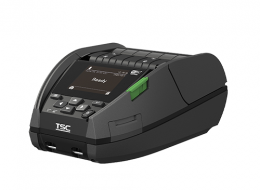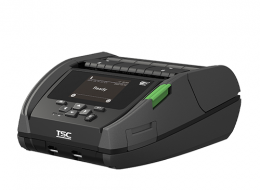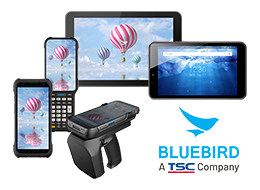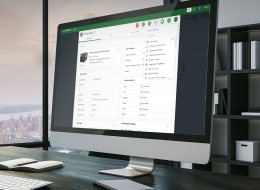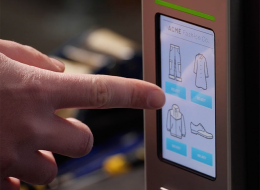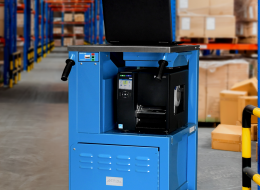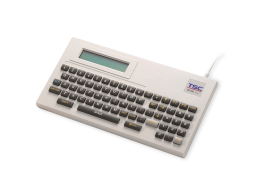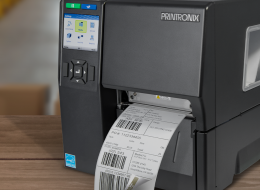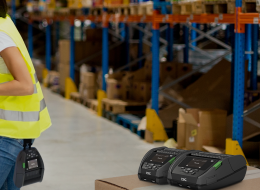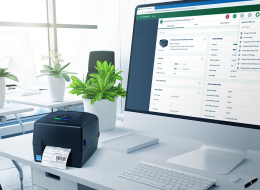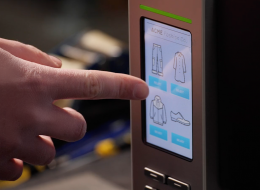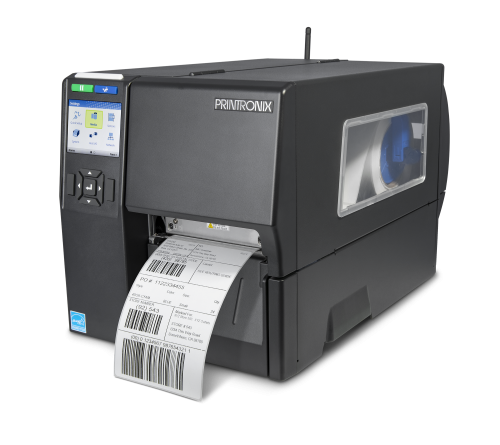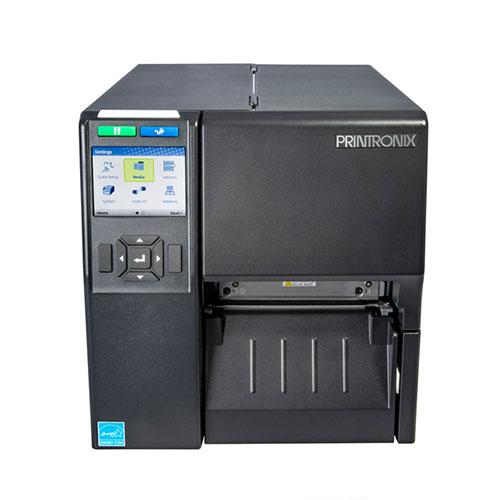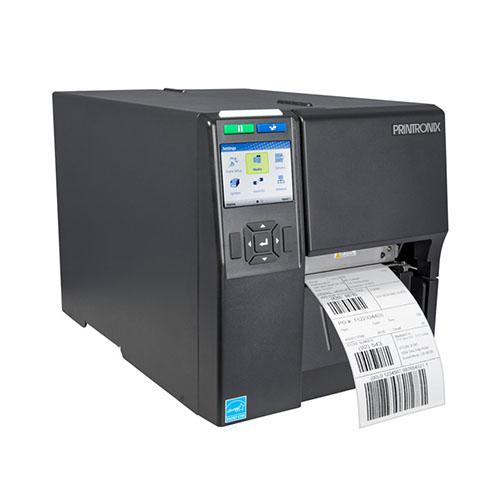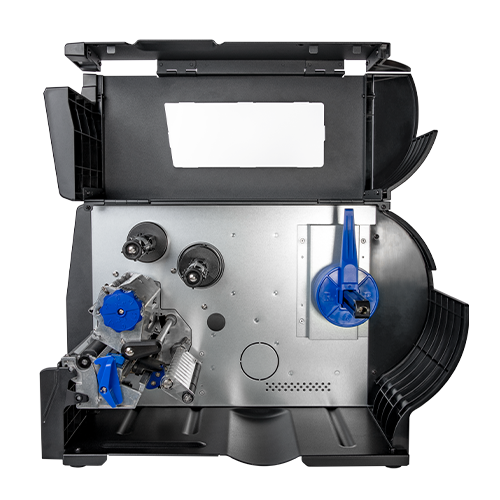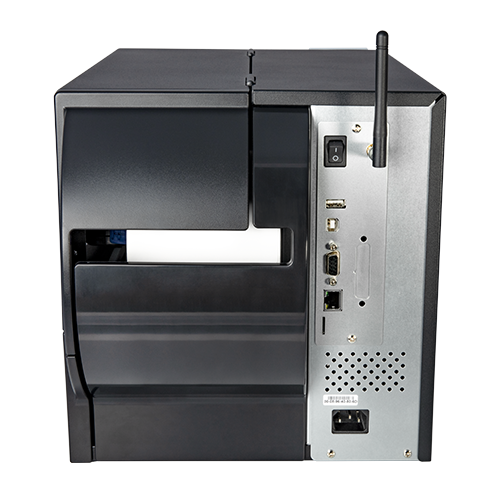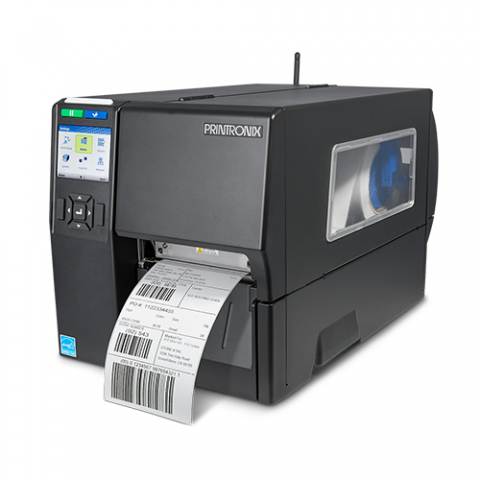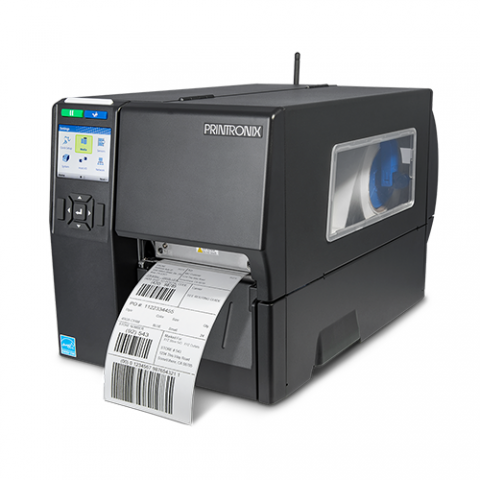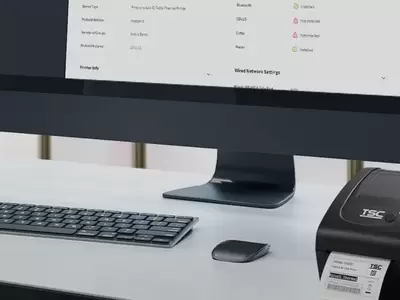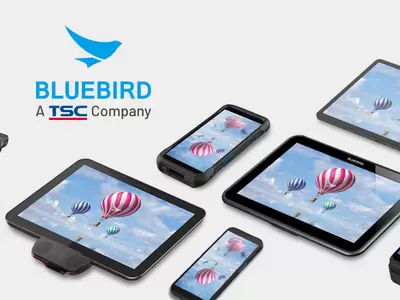T4000 Series 4-Inch Enterprise Industrial Printers
The T4000 is an entry-level, compact thermal barcode printer with enterprise-level productivity and flexible features for high-tech environments
Industries and Applications
The T4000 light industrial printer series is our most compact and affordable industrial printer with the ability to print 5,000 labels a day at speeds of up to 10-inches per second. The 4-inch models come equipped with high-end features and remote printer management capabilities.
Small, Fast, and Ready to Boost Productivity.
The T4000 RFID thermal Printer is our most compact and affordable industrial printer with the ability to print 5,000 labels a day at speeds of up to 10 inches per second. If you’re looking to improve productivity…look no further. The T4000 includes RFID capability, Printronix System Architecture (PSA), with multiple connectivity options, remote printer management tools, and automated alerts to keep your enterprise operating at optimum efficiency and productivity.
Enterprise-Level Productivity
- Exceptional print speed of 10 ips
- Prints up to 5,000 labels a day in demanding environments
- Compatible with PrintNet Enterprise, printer management tool
- Fast ARM Cortex A-7 processor
- Automated alerts keep your enterprise efficient and productive
- Uptime is maximized with 450m ribbons and 8-inch label roll capacity
Adaptable Features
- Optional RFID model encodes both standard RFID labels and on-metal RFID tags
- Optional connectivity: Enterprise level Wi-Fi, 802.11 a/b/g/n/ac, MFi Bluetooth 5.0
- Enterprise-level Wi-Fi encryption and security protocols
- Extensive standard connectivity features including Ethernet, USB Host, USB Device, serial
- Nine printer emulations for seamless integrations
- Upgrade kits available with tear and cutter(media handling)
Dependable Design
- Rugged metal enclosure with bi-fold side panel
- Built on Printronix System Architecture (PSA) platform for proven dependability
- Proprietary printhead algorithms deliver high-quality barcodes
- Large LCD color screen and easy-to-use control panel
- High MTBF of up to 12,000 hours
- Wide operating temperature range from 0 degrees C to 40 degrees C
- 203 dpi (8 dots/mm)300 dpi (12 dots/mm)
- Direct thermal/Thermal transferDirect thermal/Thermal transfer
- Color LCD with buttonsColor LCD with buttons
- Ethernet
Serial RS-232
USBEthernet
Serial RS-232
USB - Bluetooth
Wi-FiBluetooth
Wi-Fi - PrintNet Enterprise
SOTI Connect (license required)PrintNet Enterprise
SOTI Connect (license required) - IndustrialIndustrial
- Up to 10 ips (254 mm/s) @ 203 dpiUp to 7 ips (178 mm/s) @ 300 dpi
- 4.1" (104 mm)4.1" (104 mm)
- 128 MB128 MB
- 128 MB128 MB
- 4.72" (120 mm)4.72" (120 mm)
- Continuous Roll, Die-Cut, Fan-FoldContinuous Roll, Die-Cut, Fan-Fold
- 450 Meters450 Meters
- 4.3" (110 mm)4.3" (110 mm)
- 1" (25.4 mm) to 3" (76.2 mm)1" (25.4 mm) to 3" (76.2 mm)
- 0.25" Continuous; 1" Tear-Off/Peel/Cutter0.25" Continuous; 1" Tear-Off/Peel/Cutter
- Rugged metal enclosure with bi-fold side panelRugged metal enclosure with bi-fold side panel
- Support for 9 competitive printer languagesSupport for 9 competitive printer languages
{[{ key }]}
Yes. You can establish rules using TSC Console Web so that your printer will execute what you have set up every time a condition is met. Conditions for a rule can be time-based or event-driven.
You can set your printer to take an activity daily, weekly, monthly, or at a particular date/time.
The printheads are interchangeable.
Yes, TSC Console Web enables users to update printer firmware remotely.
Yes, TSC Console Web allows users to set up a reminder for printhead maintenance and the printhead mileage can be displayed on the dashboard.
No. TSC Console Web must be used through either a wireless or wired network. That is to say your printer must support either Wi-Fi or Ethernet interface if you want to manage the printer using TSC Console Web.
Yes, you need a screwdriver – the printhead is retained in place by a single screw. The screw is very accessible and easily removed.
Both ports do not interfere with each other. They can work simultaneously.
The control panel printer setup wizard provides an easy-to-follow calibration process. The Settings menu allows you to select the Gap/Mark sensor to match the type of media installed. In addition, you can set the printer to do an auto Calibrate at power up or when print station has been closed. In all cases the printer will advance a few labels and calibrate the sensors so that they will detect top-of-form.
The T4000 RFID printer has an RFID label calibration feature in the RFID menu which makes it very easy to set up the printer for both standard RFID and on-metal RFID labels. The calibration process feeds 3-4 labels to determine the optimal encoding position and RF power levels.
For Thermal Transfer applications: printheads are warranted 12 months from shipment or 1 million linear inches (whichever comes first). For Direct Thermal applications: printheads are warranted 180 days from shipment or 1 million linear inches (whichever comes first).
Users are allowed to save up to 5 sets of different configuration for quick deployment.
The compatible architecture for TSC Console Web is x86_64 only and the Linux OS distribution is Ubuntu 22.04 or above.
On-metal tags (sometimes called metal-mount or anti-metal tags) are RFID tags that are designed to operate on items made of metal. The physical properties of metal serve to reflect RF signals and so a standard RFID label would be completely undetectable by an RFID reader. On-metal tags are typically constructed with a thin foam insulator to provide a space between the metal surface and the RFID inlay. On-metal tags are available in several constructions and the ones used with printers are typically up to 1mm thick due to the foam insulator. They also should include a “bridge” between the individual tags to ensure smooth transport through the print station.
Standard Interfaces are: Serial, USB host/device and Ethernet. Optional Interfaces are: Wireless 802.11 a/b/g/n/ac and Bluetooth 4.2.
Currently the supported RFID functions through TSC Console Web are: Calibration, Read, and Write.
The UI for TSC Console Web is available in English, Traditional Chinese, Simplified Chinese, German, Danish, Spanish, Finnish, French, Italian, Japanese, Korean, Dutch, Norwegian, Portuguese, and Swedish.

